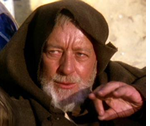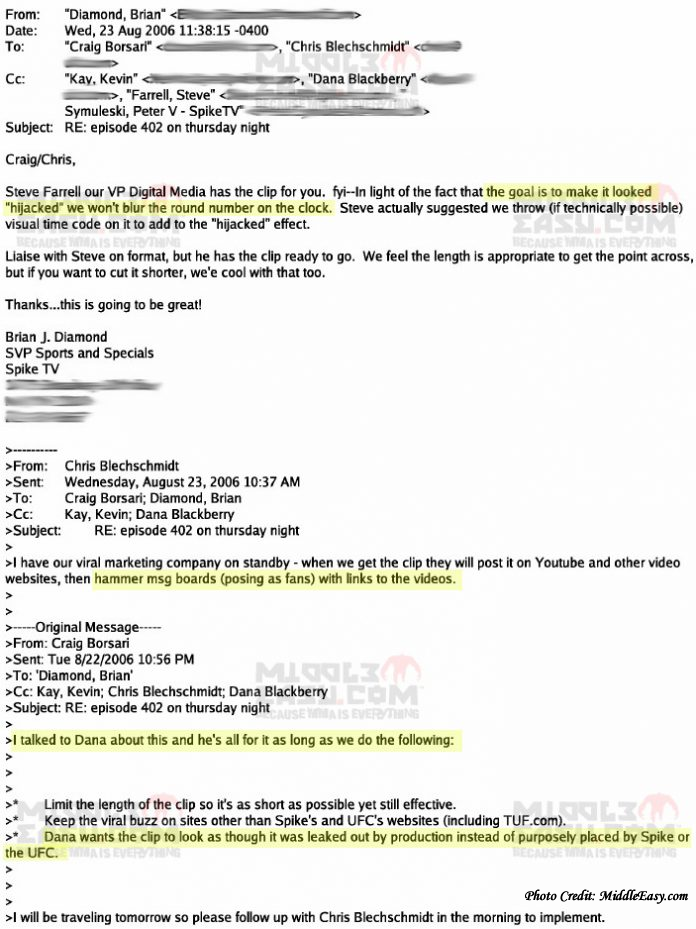Black Propaganda: The Psychology of the Combat Sports Entertainment Industry
Black Propaganda: The Psychology of the Combat Sports Entertainment Industry
“There is nothing wrong with your television set. Do not attempt to adjust the picture. We are controlling transmission. If we wish to make it louder, we will bring up the volume. If we wish to make it softer, we will tune it to a whisper. We will control the horizontal. We will control the vertical. We can roll the image; make it flutter. We can change the focus to a soft blur or sharpen it to crystal clarity. For the next hour, sit quietly and we will control all that you see and hear. We repeat: there is nothing wrong with your television set. You are about to participate in a great adventure. You are about to experience the awe and mystery which reaches from the inner mind to the outer limits.” – The Outer Limits
“I’ll take my show money and say see you later,” Diego Sanchez told MMAFighting.com according to a February 13, 2020 MMAMania.com article by Adam Guillen Jr. titled, “UFC Rio Rancho: Diego Sanchez will not fight Michal Pereira if he misses weight.” Sanchez, a 170-pound UFC welterweight who has highlighted in the 155-pound lightweight division was at a disadvantage from the very beginning considering Pereira reportedly cut 38.5 pounds in a failed bid to make the 171-pound welterweight limit in his last fight against Tristan Connelly at UFC Fight Night 158 back in September of 2019 according to an MMAFighting.com report.
 That would theoretically make Pereira eligible to fight in the UFC’s heavyweight division, though its Sanchez being labeled a coward on social media after being on the receiving end of an illegal knee Saturday night resulting in a victory for Sanchez by virtue of Pereira’s disqualification for illegally striking a downed opponent.
That would theoretically make Pereira eligible to fight in the UFC’s heavyweight division, though its Sanchez being labeled a coward on social media after being on the receiving end of an illegal knee Saturday night resulting in a victory for Sanchez by virtue of Pereira’s disqualification for illegally striking a downed opponent.
In a March 30, 2017 MMAFightingonSBN YouTube video titled, “The MMA Beat: Episode 143” MMA analyst Ariel Helwani noted to his on-set colleagues, “And one last thing on this, I’ve noticed, because you know we’ve been very Bellator centric on this show, my show, at the press conference on Tuesday, and I’ve seen just so many negative comments from fans, quote-unquote fans online, and people have been telling me for a year or so, that Zuffa pays people to go online and disparage the competition.”
“Astroturfing is what it’s called,” interjected Helwani's co-host Luke Thomas.
“I never believed this,” continued Helwani. “And I can’t really put my head, I can’t wrap my head around it. I mean like, why? This is the first time that it actually like crossed my mind like maybe this is actually a thing. And they will swear by it, that this is a thing and that it happens currently, go on the YouTube, go on Twitter, go on Instagram. I’ll post a picture about Bellator on Tuesday, I’ll Tweet something and the first ten comments, ‘They suck, this suck’s, I’m not paying for it, $50, blah, blah, blah.’ Why so negative?” asked Helwani.
Interestingly, as originally reported by MiddleEasy.com in a June 23, 2010 article titled, “In 2006, Dana White Approved Of People ‘Posing As Fans’ And ‘Leaking’ Videos To Message Boards,” it seems that there may be more to Helwani's observations than initialy meets the eye. According to the report, “The following is evidence from the trial of the Viacom vs. YouTube lawsuit that just wrapped up a few hours ago. This is not a hoax; all of this has been verified.”
The evidence in question appears to be an email discussing a video clip which was set to be disseminated by a viral marketing company to YouTube and other video messaging boards while simultaneously spamming various mixed martial arts message board forums “posing as fans with links to the videos.” According to the report, UFC President Dana White wanted the clip to, “look as though it was leaked out by production instead of purposely placed by Spike or the UFC.”
The implications of such information not only being true, but being of a common place and widespread nature within the combat sports entertainment industry could not be understated in how entire narratives, storylines and worldviews could be manipulated to serve the needs of the viral marketing companies clientele.
From how athletes are perceived by the general public to creating slight of hand, fallacy-based strawman arguments and dialogue on social media in order to social engineer public discourse, the use of psychological operations techniques in modern viral marketing campaigns would have the effect of creating false, alternate virtual realities for those most susceptible to the power of marketing and suggestion.
In attempting to understand more about psychological manipulation in viral marketing, according to a September, 1996 Air University publication titled, “Psychological Operations – Principles and Case Studies” author Col. Frank L. Goldstein writes that, “Truth and falsehood in propaganda must be separated from overt and covert operations and the issue of white, gray, and black (false) propaganda. Overt propaganda is produced by a government or organization that takes responsibility for it. Because of police state conditions or tactical considerations, it may have to be disseminated by covert means, such as agents who risk their lives to transport and distribute the materials.”
 The real-world application of such psychological operations techniques to the world of viral marketing would no doubt include agents posing as fans on message boards and social media outlets to disseminate propaganda designed to give the appearance as having been leaked by production without prior authorization from company executives. Such techniques could and very likely do include corruptive relationships with influential members of the combat sports media elite who serve as little more than proxies in order to disseminate and propagandize the general public.
The real-world application of such psychological operations techniques to the world of viral marketing would no doubt include agents posing as fans on message boards and social media outlets to disseminate propaganda designed to give the appearance as having been leaked by production without prior authorization from company executives. Such techniques could and very likely do include corruptive relationships with influential members of the combat sports media elite who serve as little more than proxies in order to disseminate and propagandize the general public.
The document goes on to explain that, “Overt propaganda maybe true or false. Since the effect of propaganda depends on credibility, overt sources that utilize falsehoods quickly lose all effectiveness. Overt propaganda is also known as white propaganda because the source takes responsibility for it. Gray propaganda is material that is distributed without an identified source. It may be true or false. Black propaganda is material produced by one source that purports to have emanated from another source.”
According to the report, “Such covert productions may be used to damage the credibility of a white (truthful) source by disseminating obvious falsehoods under the label of the previously trusted source. Black propaganda-if effective at all-quickly loses effectiveness unless the populace is particularly susceptible to rumors, manipulation, and distortion of fact.”
And as coincidence would have it, the very nature of the social media platforms Ariel Helwani cited in Twitter, Instagram and YouTube are ripe with populations particularly susceptible to rumors, manipulation and distortions of fact. Which not only have serious and far reaching consequences for the realities and perceptions of combat sports fans, but also virtually the entire viewing population of these platforms as a whole regardless of subject matter.
In a February 16, 2020 ESPN.com article titled, “UFC Fight Night results: Disqualifications, upsets and backflips,” authors Marc Raimondi and Jeff Wagenheim write that, “On the bizarre scale, the UFC Rio Rancho co-main event delivered.” The report went on to state that, “It was the second illegal knee DQ in the span of three fights after there had not been a single one in the UFC in more than a year. UFC Rio Rancho is the first card in UFC history with two disqualifications finishes.”
“When referee Jason Herzog paused the bout, Sanchez was bleeding from a cut on his hairline," the ESPN report went on to explain. Referee "Herzog brought in the ringside physician to tend to Sanchez. But Sanchez said he could not see and Herzog had no choice but to call for a stoppage."
With judging irregularities having plagued UFC 247 and conspiracy theories surrounding UFC 246 abound, UFC Rancho Rio is right at home in the outer limits of the combat sports entertainment industry. A place where UFC work horses like Diego Sanchez, a 36-fight veteran under the Zuffa banner who has competed in the UFC’s lightweight division is labeled a coward by nobodies on social media for accepting a fight against an opponent who cut 38.5 pounds in order to compete against smaller opponents and having accepted a disqualification victory following an illegal strike to a downed opponent from said UFC heavyweight division eligible fighter.
In a sport that routinely chews fighters up and spits them out without regard for their physical health or financial well-being; being labeled a coward after agreeing to participate in a squash match in an industry where turning down fights is frowned upon is the kind of ignorant, carefree attitude I would expect from casual fans new to the sport or from those with skin in the game who stand to benefit from seeing a bloated lightweight dominated by an emaciated heavyweight. Considering both men signed up and agreed to participate under the abomination known as the unified rules, I personally do not blame Sanchez one bit for taking both his show and win money while waving to the unappreciative crowd as he exits stage left with new beginnings on the horizon.






